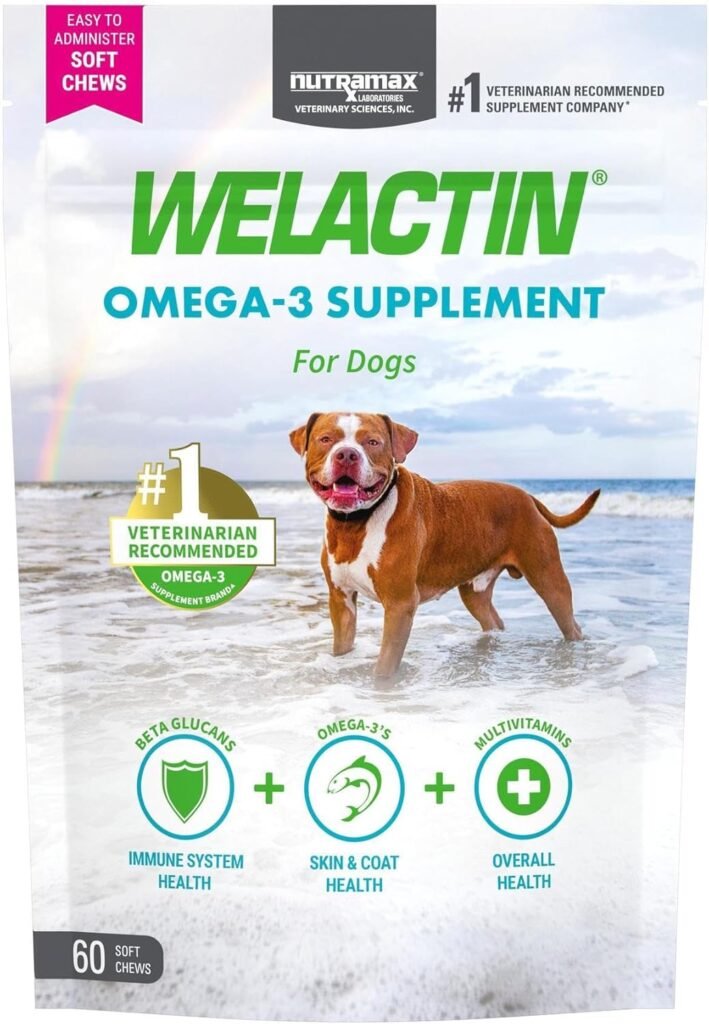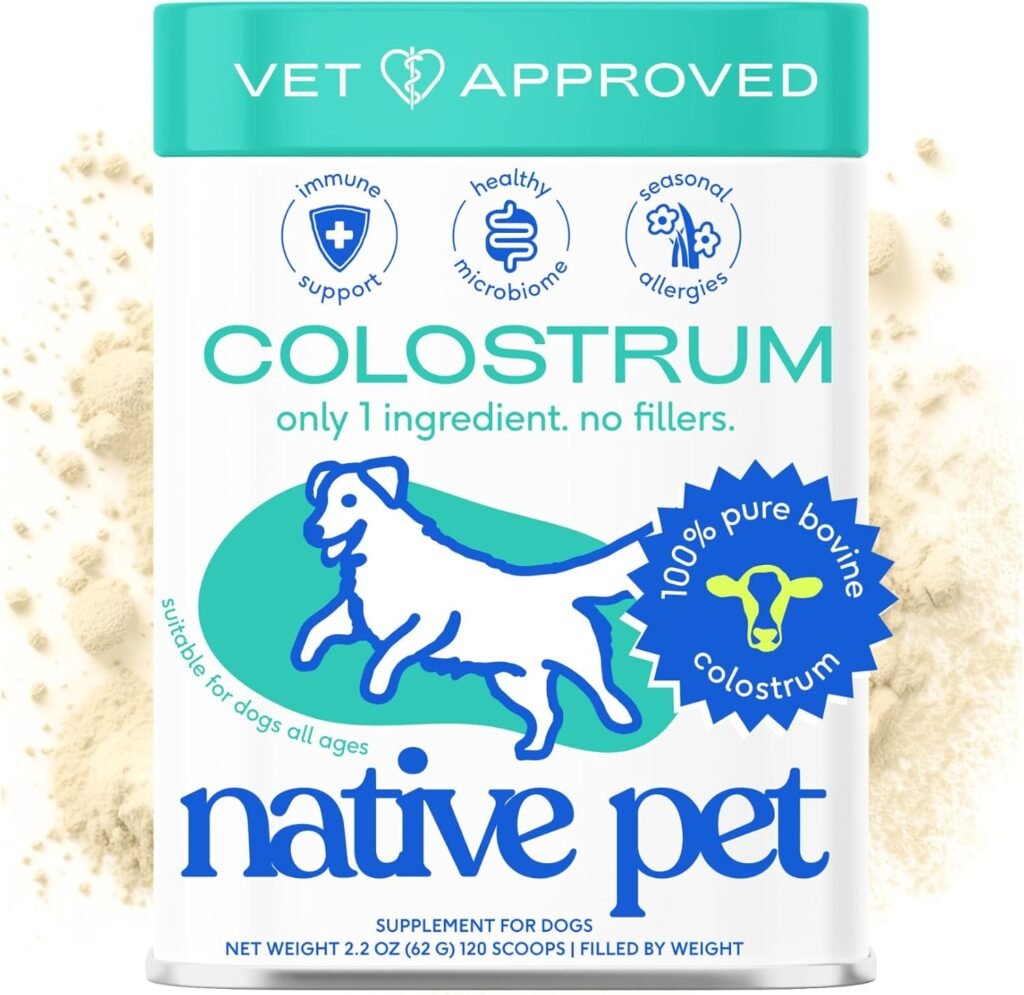If your dog suffers from allergies, you’re probably familiar with the frustration of watching them scratch, lick, and experience discomfort. Whether it’s from environmental factors, food allergies, or fleas, finding the right treatment is essential for improving your dog’s quality of life.
🐾 Always consult your veterinarian before starting any new treatments—natural or pharmaceutical. Every dog is unique, and what works for one may not be safe or effective for another.
In this guide, we’ll explore both homeopathic (natural) and pharmaceutical (medication-based) treatment options for dog allergies, helping you make the best choice for your furry friend.
Homeopathic & Natural Treatments for Dog Allergies
Many pet owners opt for natural remedies first before considering pharmaceuticals. While natural treatments may not work for every dog, they can be effective for managing mild to moderate allergies and supporting overall skin health.
1. Quercetin (“Nature’s Benadryl”)
- A natural flavonoid with antihistamine, anti-inflammatory, and antioxidant properties.
- Reduces itching, swelling, and inflammation from allergies.
- Available in supplement form (capsules or powders).
2. Omega-3 Fatty Acids


- Found in fish oil, krill oil, or flaxseed oil.
- Supports skin health and reduces inflammation, especially for dry, itchy skin caused by environmental allergies.
- Tip: Some dogs are picky about fish oil, so consider finding a palatable version for your dog.
3. Apple Cider Vinegar (ACV) Rinse
- A natural anti-fungal and antibacterial agent.
- Helps soothe itchy skin and prevent secondary infections.
- How to Use: Mix 50/50 ACV and water, then spray onto affected areas (avoid open wounds).
4. Local Raw Honey
- Introducing local honey with small amounts of local pollen may help desensitize a dog’s immune system.
- Best for mild seasonal allergies.
- Note: Results vary—some dogs may benefit, while others may not see much improvement.
5. Coconut Oil
- Contains lauric acid, which has anti-inflammatory and anti-bacterial properties.
- Can be applied topically to soothe dry skin or given orally to support immune health.
6. Colostrum
- Supports immune function and helps regulate allergic responses.
- Found in powder or capsule form and works best when given consistently.
7. Herbal Remedies (Chamomile, Licorice Root, Nettle Leaf, etc.)
- Chamomile: Soothes irritated skin and can be used as a tea rinse.
- Licorice Root: Naturally reduces inflammation with steroid-like effects.
- Nettle Leaf: Contains antihistamines, helping with seasonal allergies.
8. Oatmeal Baths
- Relieves itching and soothes inflamed skin.
- Use finely ground oatmeal in a lukewarm bath for best results.
Pharmaceutical & Medical Treatments for Dog Allergies
For dogs with more severe allergies, natural remedies may not be sufficient. In these cases, pharmaceutical treatments can provide stronger relief.
1. Antihistamines (Benadryl, Zyrtec, Claritin)
- Block histamine reactions that cause itching and inflammation.
- Best for mild allergies, but effectiveness can vary.
- Dosage: Always check with your vet before giving human medications.
2. Apoquel
- A prescription medication that blocks the itch and inflammation pathway.
- Works quickly (often within 24 hours) and is suitable for both short-term and long-term use.
- Downside: Expensive and not suitable for dogs with immune system issues.
3. Cytopoint Injections
- A biologic therapy that targets and neutralizes proteins that cause itching.
- Administered via injection every 4-8 weeks.
- Ideal for dogs with severe environmental allergies.
- Downside: Expensive, and some dogs may not respond well.
4. Steroids (Prednisone, Dexamethasone, etc.)
- Powerful anti-inflammatory drugs used for severe allergic reactions.
- Effective but can have side effects like increased thirst and hunger.
- Tip: Best used for short-term relief.
5. Immunotherapy (Allergy Shots)
- Custom-formulated injections that help desensitize a dog’s immune system to specific allergens.
- The only treatment that may “cure” allergies over time.
- Requires testing and long-term commitment (months to years).
6. Medicated Shampoos & Sprays
- Help relieve itching, remove allergens from the skin, and prevent secondary infections.
- Ingredients to Look For: Chlorhexidine, ketoconazole, or oatmeal-based formulas.
7. Prescription Diets & Limited-Ingredient Foods
- For dogs with food allergies, switching to a hydrolyzed protein or limited-ingredient diet may help.
- Challenge: Picky eaters may resist prescription diets, making this solution less effective for some.
Which Treatment is Best for My Dog?
The best allergy treatment for your dog depends on:
- The type of allergy (environmental, food, flea, etc.).
- The severity of symptoms (mild itching vs. chronic infections).
- Your dog’s response to treatments (some may benefit from homeopathy, while others need stronger medications).
For mild to moderate allergies, natural remedies like omega-3s, quercetin, and oatmeal baths may be enough. For moderate to severe allergies, pharmaceutical options like Apoquel, Cytopoint, or allergy shots might be necessary.
In many cases, a combination of treatments works best. I know firsthand how challenging it can be to manage environmental allergies (especially with Yuna!), but with patience and the right approach, it’s possible to find the best solution for your pup.
Final Thoughts
If your dog suffers from allergies, don’t give up hope! With a mix of homeopathic and pharmaceutical treatments, you can help your dog live a more comfortable, itch-free life.
Do you have an allergy-prone dog? What treatments have worked for you? Share your experiences in the comments—I’d love to hear your thoughts!





